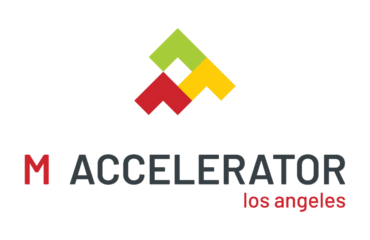
In the world of early-stage startups, advice is abundant—but clarity is rare.
Founders routinely seek mentorship, hoping for guidance that will help them avoid common pitfalls and accelerate their path to success. Yet too often, they leave mentorship sessions more confused than empowered. One mentor advocates for blitz-scaling; another insists on slow, sustainable growth. A third swears by a rigid “build-measure-learn” loop, while a fourth dismisses MVPs altogether in favor of audience-first strategies.
This advice overload isn’t just frustrating—it’s paralyzing. Why? Because much of it assumes there’s a single, correct path to follow. But startups aren’t recipes. They’re complex systems that evolve in real time.
What early-stage founders really need isn’t a map—they need a compass. And that’s exactly what coaching provides.
Table of Contents
The Problem with “Proven Formulas”
Advisory-based mentorship tends to lean on past success stories—”I did X, so you should do X too.” While well-intentioned, this type of guidance often fails to account for the unique context of each founder: their industry, customer segment, resources, timing, and personal risk tolerance.
In practice, this creates several risks:
- Misalignment: Applying growth-stage tactics to a validation-stage startup can waste precious resources.
- Dependency: Founders become reliant on external input rather than cultivating internal decision-making capacity.
- False confidence: Prescriptive advice can lead to premature scaling or misreading the market.
Worse, it can disempower founders from trusting their instincts and learning from the iterative, messy process of building something from zero.
Why Coaching Works for Early-Stage Founders
Coaching is fundamentally different. It doesn’t assume to know your answers—it helps you find them.
Rooted in the Socratic method, coaching focuses on asking powerful questions that surface blind spots, test assumptions, and encourage self-reflection. For early-stage founders operating in environments full of ambiguity, this method is more than a nice-to-have—it’s a survival tool.
Here’s what a coaching conversation might sound like:
- “What evidence do you have that this is your ideal customer?”
- “What would success look like in the next 90 days—and how would you measure it?”
- “What’s the cost of not acting on this opportunity?”
- “What are you avoiding, and why?”
Instead of prescribing the next steps, coaching challenges the founder to define their own metrics of success—and own their learning process.
Coaching Builds Founders, Not Just Companies
In the earliest stages, the startup is the founder. Their clarity, judgment, and ability to adapt directly determine the business’s trajectory. Coaching prioritizes the development of those internal skills, equipping founders to:
- Make better decisions under uncertainty
- Prioritize learning over perfection
- Handle conflicting input from investors and advisors
- Build culture and processes aligned with their values
This is especially important for solo founders or small founding teams who often lack sounding boards. For them, a coach becomes a critical mirror—someone who listens deeply, questions wisely, and helps them navigate the mental and strategic roadblocks of startup life.
A Case Study: Coaching vs. Advisory in Action
Consider two first-time founders at the same stage: each has an early prototype and a rough sense of their ideal customer.
Founder A joins an accelerator that assigns her a mentor who takes an advisory approach. He reviews her deck, suggests aggressive outreach tactics, and connects her with a few VCs. She follows his advice diligently—but when those VCs pass on her pitch due to unclear customer validation, she struggles to know what to tweak.
Founder B, meanwhile, works with a coach who begins by asking, “What do you know for sure about your customer’s top problem?” Over the next few weeks, they explore customer discovery interviews, iterate on positioning, and co-create a lightweight validation test. Rather than focusing on pitching, they focus on learning.
Six months later, both founders are raising a seed round. Founder A is still pivoting her pitch based on feedback from investors. Founder B has secured two pilot customers and refined her messaging based on real user behavior.
The difference isn’t hustle—it’s clarity.
Coaches vs. Advisors: How to Tell the Difference
To make the most of your network, you need to distinguish between coaching-oriented and advisory-oriented mentors. Here’s how:
| Characteristic | Coach | Advisor |
| Primary Mode | Asks questions | Gives answers |
| Focus | Exploration and growth | Execution and tactics |
| Assumptions | You know your context best | Their experience is generalizable |
| Goal | Build your capacity to decide | Provide a playbook to follow |
| Typical Role | Ongoing, reflective | Intermittent, directive |
Many great mentors blend both. But if you’re at the earliest stages—pre-revenue, pre-product-market fit—lean toward those who help you sharpen your own thinking. That foundation will serve you far longer than any checklist or slide deck.
Coaching Culture: Why It Scales with You
One of the most underrated benefits of coaching is how it helps shape a learning culture within the company. Founders who’ve learned to interrogate assumptions and reflect on decisions tend to:
- Build teams that value transparency and feedback
- Create metrics that drive learning, not just vanity
- Stay agile through market shifts and investor pressures
In other words, coaching doesn’t just make you a better founder. It lays the foundation for a more adaptive, resilient startup.

Coaching vs. Advisory: Why Your Startup Needs Better Questions, Not More Answers
As we’ve explored, early-stage founders don’t need another “proven formula”—they need the space and guidance to think clearly, make context-specific decisions, and grow into effective leaders. Coaching delivers this by asking the right questions, not prescribing generic answers. It builds founder confidence, strategic capability, and long-term resilience—qualities that no playbook can replace.
But developing this mindset isn’t something you do alone. It requires the right environment—one that challenges your assumptions, sharpens your message, and connects you with a community of founders solving similar challenges.
If you can’t communicate your business with a powerful idea, you won’t be able to build it.
Join our weekly Founders Meetings where early to pre-Series A founders discover how to leverage AI and strategic messaging to unlock growth. In these interactive sessions, you’ll learn the main factors holding founders back (from our analysis of 2,000+ applications yearly), see real AI implementation in GTM strategy, and connect with a community of 500+ founders who’ve raised $50M+ collectively.
Join the next Founders Meeting to download our Clarity Formulas and get direct access to our CEO and fellow founders navigating similar challenges.
https://maccelerator.la/en/live-presentation/



